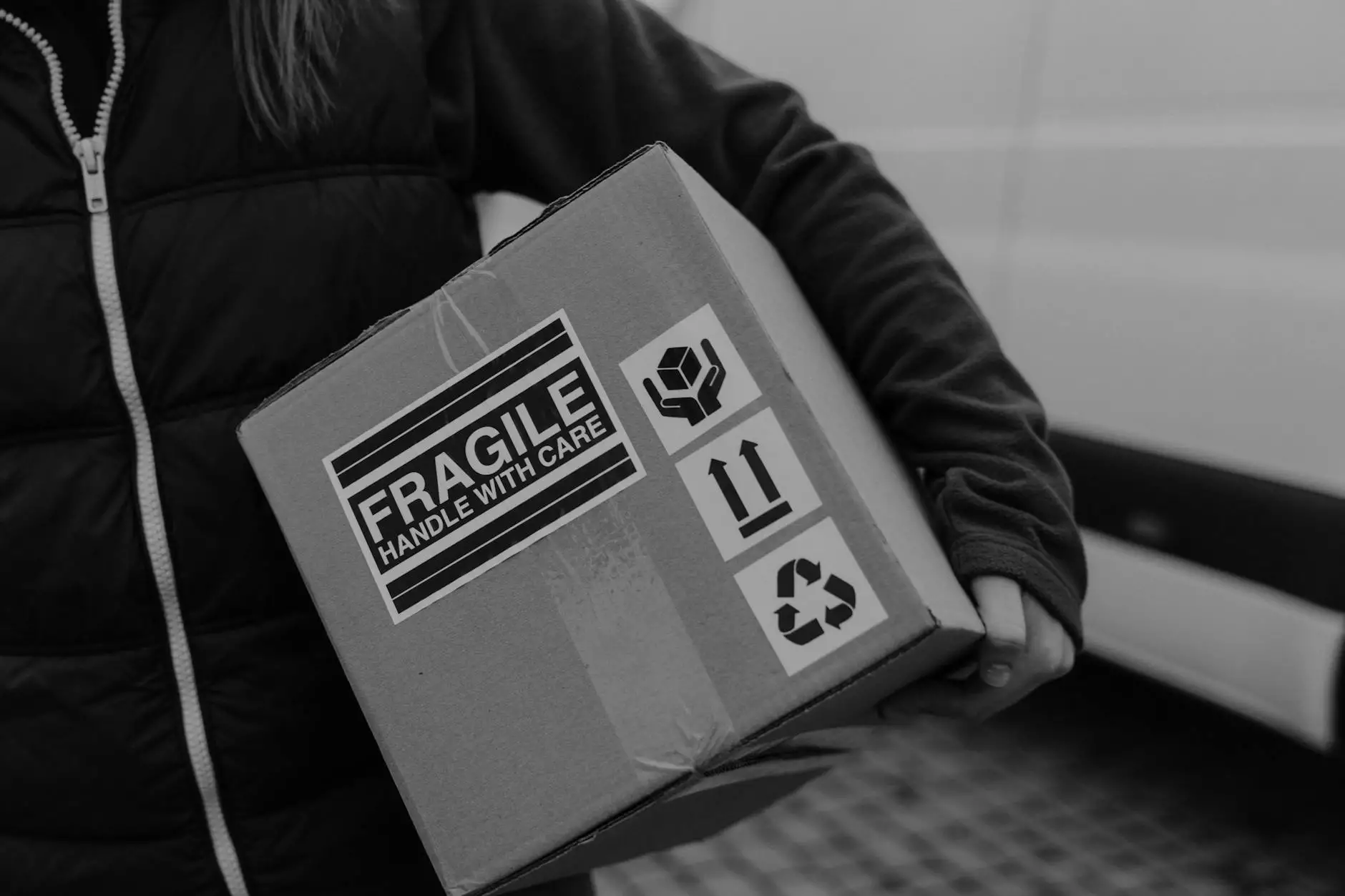Maximizing Business Potential with Labeling Tool Machine Learning

In the ever-evolving landscape of modern business, the integration of technology is no longer a luxury but a necessity. Among the groundbreaking advancements is the emergence of labeling tool machine learning, a concept that is revolutionizing how businesses operate, particularly in the realms of Home Services and Keys & Locksmiths.
The Importance of Machine Learning in Business
Machine learning has become a vital asset for businesses seeking to enhance their operational efficiency. The technique involves the use of algorithms to analyze data, learn from it, and make informed decisions without human intervention. This ability to process vast amounts of information is particularly beneficial for service-oriented sectors like Home Services and Keys & Locksmiths.
What is a Labeling Tool in Machine Learning?
A labeling tool in machine learning refers to software or systems that assist in the annotation of data. This is crucial because, in machine learning, labeled data is needed for supervised learning algorithms to create predictive models. As businesses gather increasing amounts of data, the need for effective labeling tools becomes paramount.
- Enhanced Accuracy: Proper labeling ensures that machine learning models are trained on accurate data, improving their performance.
- Efficiency: Automated labeling tools can significantly reduce the time and effort required for data annotation.
- Scalability: These tools allow businesses to scale their data operations as their datasets grow.
Why Businesses in Home Services and Locksmiths Need Labeling Tools
The Home Services and Keys & Locksmiths industries are increasingly leveraging technology to improve service delivery and customer satisfaction. Here are a few reasons why implementing a labeling tool powered by machine learning can greatly benefit these sectors:
1. Improved Customer Service
Understanding customer needs is fundamental. By utilizing label data generated through customer interactions, businesses can develop tailored services that respond to the specific requirements of their clients.
2. Predictive Maintenance
For locksmiths and home service professionals, being able to predict when a service will be required can enhance operational effectiveness. Machine learning algorithms analyze historical data to identify patterns and forecast future service needs, minimizing downtime and improving customer satisfaction.
3. Enhanced Marketing Strategies
Data labeling tools can categorize customer feedback, service usage statistics, and purchasing behavior, allowing businesses to tailor their marketing strategies effectively. This personalized approach helps in reaching the right audience with the right offers.
Key Features of Labeling Tool Machine Learning
A well-designed labeling tool utilizes machine learning capabilities to streamline the data annotation process. Here are some key features:
- Automation: Automates the data labeling process, reducing human errors and saving time.
- Collaboration: Enables multiple users to work simultaneously, improving team productivity.
- Intuitive Interface: User-friendly interfaces that simplify the data labeling process for non-technical users.
- Integration: Easily integrates with existing systems to ensure a smooth workflow.
How Businesses Can Implement Labeling Tool Machine Learning
Implementing a labeling tool machine learning solution involves several key steps:
1. Identify Needs and Objectives
Before choosing a labeling tool, businesses must assess what they want to achieve. Are they aiming to improve customer service, enhance predictive maintenance, or streamline marketing efforts? Identifying clear objectives will guide the selection process.
2. Choose the Right Tool
Many labeling tools are available, each with unique features and benefits. Businesses must choose a tool that aligns with their objectives and is compatible with their existing systems. Some popular tools include:
- Labelbox: A comprehensive labeling platform that helps in managing the entire data lifecycle.
- Prodigy: A modern annotation tool for creating training data for machine learning models.
- SuperAnnotate: A collaborative annotation tool designed for machine learning projects.
3. Train Your Team
Once the tool is selected, training the team on how to use it effectively is essential. Organizing workshops and training sessions can ensure everyone understands the labeling process and the tool's functionalities.
4. Monitor and Optimize
Post-implementation, businesses should continually monitor the performance of the labeling tool. This includes assessing the accuracy of the labeling, the efficiency of the data processing, and the overall impact on business operations. Regular optimization will help in maximizing the tool's potential.
Case Studies: Successful Implementation of Labeling Tools
To illustrate the effectiveness of labeling tool machine learning, let’s explore a few case studies:
1. Case Study: Quick Locksmiths
Quick Locksmiths integrated a labeling tool machine learning solution to enhance their customer service. By analyzing labeled feedback data from customers, they identified common service-related issues. As a result, they tailored their training programs to address these concerns, significantly boosting customer satisfaction and retention.
2. Case Study: HomeFix Services
HomeFix Services used a data labeling tool to track service requests and outcomes. The machine learning algorithms identified trends in service issues, allowing them to shift their marketing strategies and focus on high-demand areas. This led to a 30% increase in service bookings.
Future Trends in Labeling Tool Machine Learning
As technology continues to advance, the future of labeling tools in machine learning looks promising. Here are some trends to watch:
- Increased Automation: Continued development in AI will lead to more advanced automated labeling processes.
- Real-time Data Processing: Future systems will likely allow for real-time data labeling, which can greatly enhance decision-making processes.
- Enhanced User Experience: Continuous improvements in user interfaces will make these tools even more accessible to all team members.
Conclusion
The integration of labeling tool machine learning into business practices, especially in the Home Services and Keys & Locksmiths sectors, represents a significant opportunity for growth and efficiency. By improving customer service, enhancing predictive maintenance, and optimizing marketing strategies, these tools are set to transform how businesses operate today. Investing in these technologies is not just a choice; it’s a decisive step towards a more data-driven, customer-centric future.
Embrace the future of business with labeling tool machine learning!



